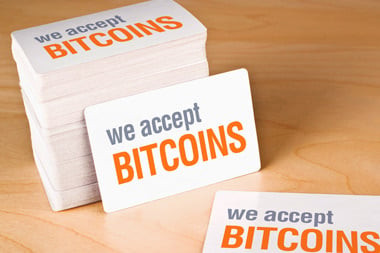Expedia chiefs decide to accept Bitcoin

Mould-breaking digital currency moves further into the mainstream as hotel chain becomes the first of its size to use the payment system
Expedia vice president Michael Gulmann has announced that the company will now accept Bitcoin as payment for customers looking to book hotel rooms online. In partnership with Bitcoin payment processor Coinbase, the firm will initially restrict these payments to bookings in the US. Bitcoins will therefore become a viable payment option at Expedia checkouts, joining established methods such as Visa, MasterCard, American Express, Discover, JCB, Diners Club and PayPal.
Expedia Inc. is in a unique position, as one of the world’s leading online travel agencies, to solve travel planning and booking for our customers and partners alike by adopting the latest payment technologies,” Gulmann said. “We’re continually looking at ways consumers want to pay for their travel [and] bitcoin is a great example of how Expedia is investing early in an array of payment options to give our customers and partners more choice in the ways they interact with us.”
Bitcoin has already been adopted by some smaller online travel sites such as Travel Keys and CheapAir – but Expedia is a major coup for the currency’s advocates, as it is the first major travel firm to adopt it. Colin Jeffrey, writer at technology publication gizmag, said: “Bitcoin is seeing a steady increase in its exchange in businesses worldwide, not just because it has a public ledger that indicates it is set up as a trustworthy and secure technology, but because consumer uptake is increasing.” He added that one reason for the currency’s success was that it is “touted as basically inflation-proof. That is, the gradual restriction of supply – rather than a continued production of money like in "quantitative easing" – is part of the Bitcoin protocol. Total supply is topped at a loosely-defined limit of 21 million, and every four years the creation rate of Bitcoins is halved.”
However, Expedia is likely to be cautious in rolling out Bitcoin across its online platform, following a turbulent few months in which the currency has been plagued by security concerns. Japanese exchange MtGox came under fire in the wake of some serious security breaches, damaging the currency’s reputation. Further controversies have raged over how the currency should be addressed in the tax system.
In China, restaurant chain PF Chang’s Bitcoin-processing platform was breached, resulting in the loss of sensitive customer financial data – including credit card numbers – and that information was sold online by hackers in exchange for Bitcoins.
Furthermore, Harvard Business School associate professor Benjamin Edelman said that use of Bitcoins in the retail field could lead customers to spend more money than they would with a credit or debit card.
“Suppose I wanted to buy shoes at Overstock that cost $100,” he said. “If I pay by credit card, the receipt says $100, but my card’s rebate means I actually only pay $97.80. If I wanted to pay with Bitcoin instead, I’d need to open a Bitcoin wallet and pay $101 to Coinbase to get $100 of Bitcoins (at the current exchange rate). (The extra dollar covers a 1% fee to Coinbase.) If I hurry straight to Overstock, my Bitcoins should still be worth $100. (They’re as likely to go up as down in the time I have to wait.) But notice: The transaction ends up costing me $101 by Bitcoin, versus $97.80 by credit card. I might try it once as an experiment. But I have every incentive to stick with my credit card going forward.”
He added: “The crux of the problem is price coherence – a market structure wherein buyers pay the same price whether buying directly or via an intermediary. Consider: paying cash versus credit card, reaching a merchant by typing in its domain name versus clicking an ad on Google, or booking on an airline’s site versus an online travel agent like Expedia. In this market structure, intermediaries don’t compete to offer lower prices to merchants. Rather, they compete to offer buyers as much benefit as possible. To tempt me away from my 2.2% Visa card, MasterCard needs to offer a 2.3% alternative.”
Bitcoin, Edelman stressed, doesn’t play this game. “There’s a certain appeal to rejecting the escalating benefits and ever-higher fees to merchants. But consumers have little reason to forego these benefits – all the more so if Bitcoin then rejects the important consumer benefits (consolidated billing, 30 to 60 day float, and dispute resolution rights) that accompany mainstream payment models.”

Press & Media Enquiries
For more information or to request interviews, contact CMI's Press Team on 020 7421 2705 or email press.office@managers.org.uk


